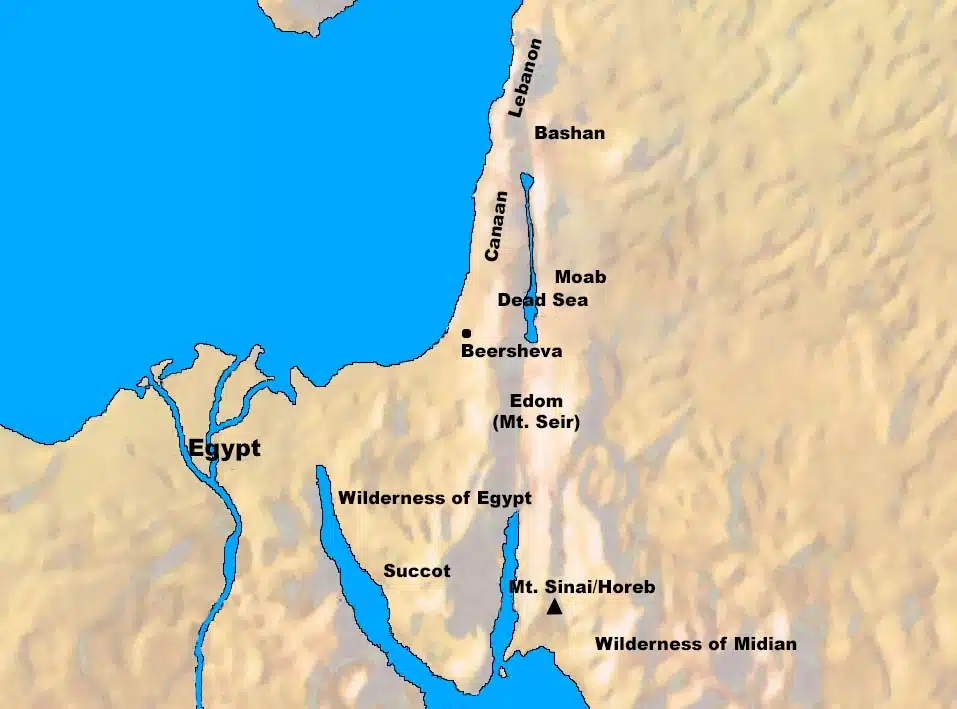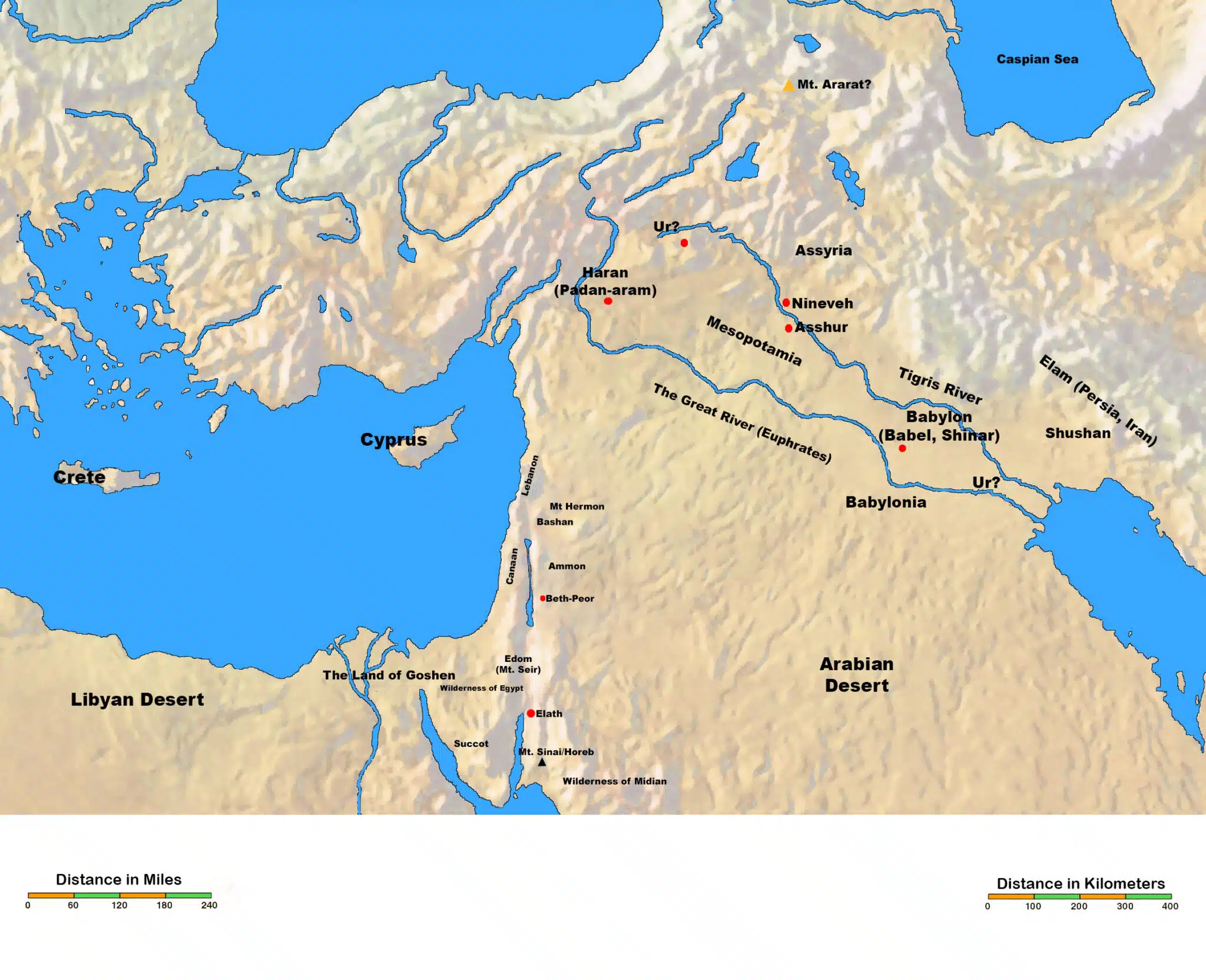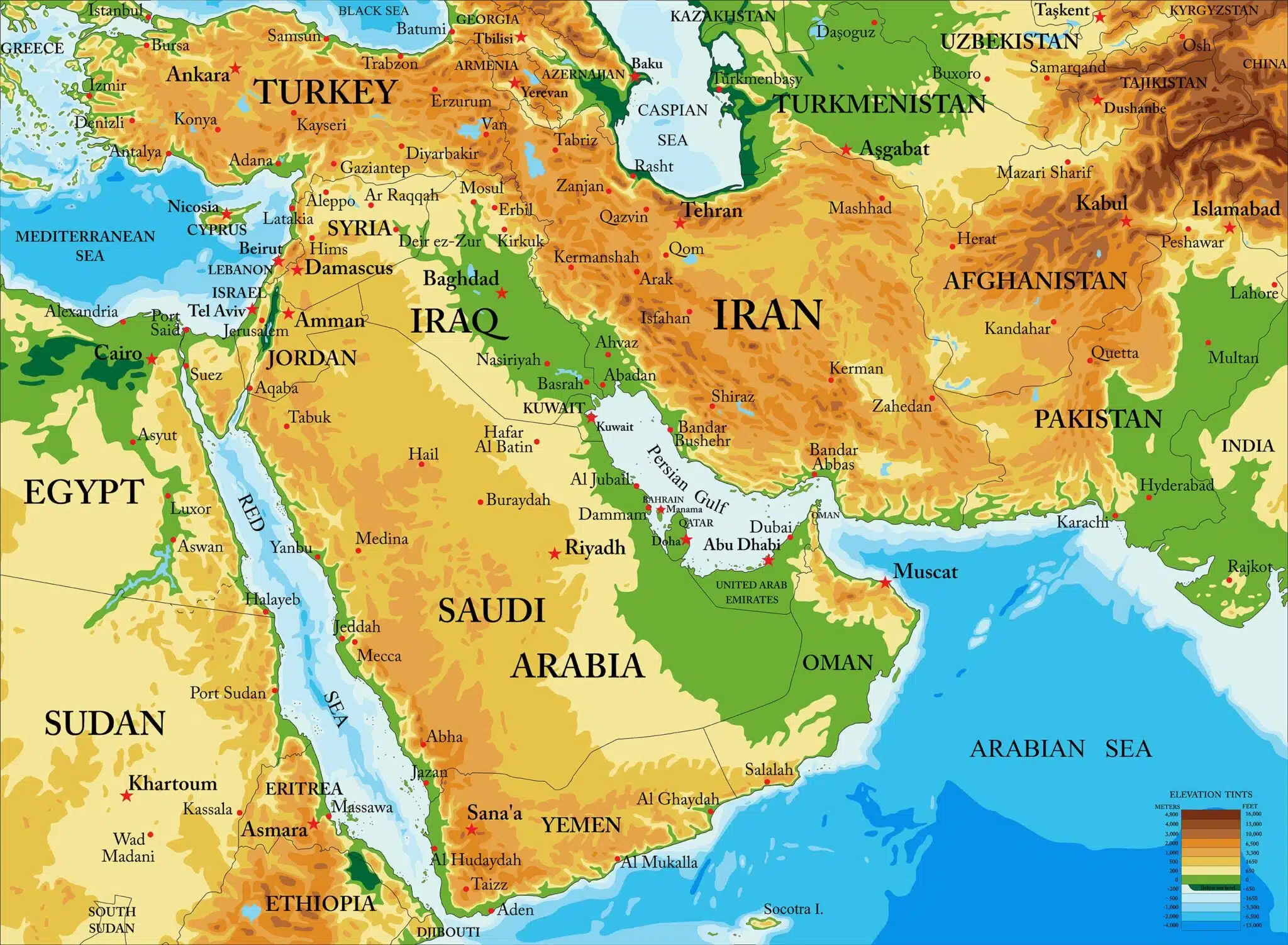Abraham presumes God meant that His promises to bless him and his descendants would come through Ishmael. But God says His covenant will be established through a son born to Sarah. His name will be Isaac.
In Genesis chapter 15, Abram suggested that his servant Eliezer would be his heir, now he considers Ishmael as his apparent heir. Ishmael did fit all the criterion to this point, since he was a child from Abraham’s own body. Abraham had bowed in reverential awe, he laughed, then reasoned, and now makes a plea, “Oh that Ishmael might live before You!” Abraham cried out to God for Ishmael’s sake. He apparently thinks that God has misspoken, and might be offering Him a polite correction.
God assures Abraham that Abraham had heard Him right, that Sarah your wife will bear you a son, and you shall call his name Isaac. The word “Isaac” in Hebrew is Yishaq, which is similar to the Hebrew word translated “laughed” (Sahaq) in verse 17. In verse 17 Abraham laughed (Sahaq), apparently being amused or being amazed at what God was saying (Judges 16:25, Genesis 18:12-15, 21:3,6). Therefore, God instructs Abraham to name his son Isaac (Yishaq) which means “he laughs.” Perhaps God was also laughing at the idea He has limitations. Isaac represents the triumph of the power of God over the limitations of nature.
Abraham was 100 years old when Isaac was born. Through him, God would bless the nations and keep his covenant and promises to Abraham (Genesis 21:8-10, 25:1-6). Isaac’s birth was a special act of God (Genesis 21:1-7) and his preservation as the promised son was just as much a miracle (Genesis 22). For the fourth time in this chapter, we encounter the term an everlasting covenant (v. 7, 8, 13, 19) enduring even for his descendants after him.God tells Abraham, as for Ishmael, I have heard you. The name Ishmael means “God will hear.” God indeed “heard” Abraham’s request concerning Ishmael. Although Ishmael is not to be Abraham’s spiritual heir, he receives God’s blessing. God gives four promises to Ishmael. (1) “I will bless him.” (2) “will make him fruitful.” Although Ishmael was not the promised son, God kept His promise to make him fruitful. Ishmael will have many descendants. (3) “He shall become the father of twelve princes.” Just as 12 sons and eventually 12 nations were to come from Isaacs’s son Jacob (Genesis 29:31), God promises that 12 princes and ultimately 12 tribes would come from Ishmael (Genesis 25:12-18). And (4) “I will make him a great nation.” Gods promises to Ishmael represent a considerable enhancement over the words spoken to Hagar about Ishmael (i.e. Genesis 16:11-12). Ishmael will become the father of a great people, but he and his offspring will be outsiders; however, Isaac will assume his father’s inheritance.
Biblical Text
18 And Abraham said to God, “Oh that Ishmael might live before You!” 19 But God said, “No, but Sarah your wife will bear you a son, and you shall call his name Isaac; and I will establish My covenant with him for an everlasting covenant for his descendants after him. 20 “As for Ishmael, I have heard you; behold, I will bless him, and will make him fruitful and will multiply him exceedingly. He shall become the father of twelve princes, and I will make him a great nation.
Check out our other commentaries:
-
Colossians 2:4-5 meaning
The unity of spirit binds all believers across all geography and time. Paul is fighting from a distance to help ensure the loud and present...... -
Matthew 10:24-25 meaning
Jesus informs His disciples that they will not be greater than Him, but they can be like Him. This likeness (and their greatness) will come...... -
Leviticus 23:15-22 meaning
God declares the Feast of Weeks to be one of His appointed times. The Feast of Weeks was later named “Pentecost” by Hellenized (Greek) Jews...... -
Matthew 5:31-32 meaning
Jesus closes a loophole that men used to exploit Moses’s teaching on divorce....... -
Daniel 10:4-9 meaning
Daniel sees a vision of a man dressed in wealthy clothing, whose skin and eyes are shining and dazzling. Daniel faints when he sees this......





